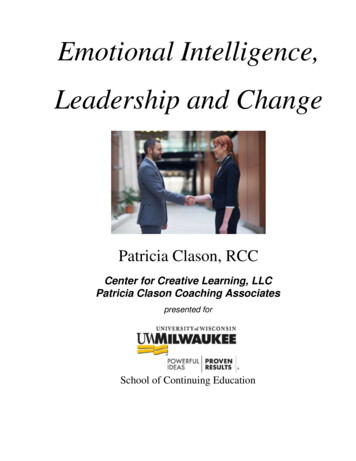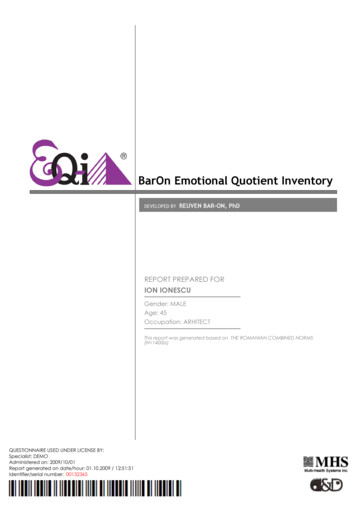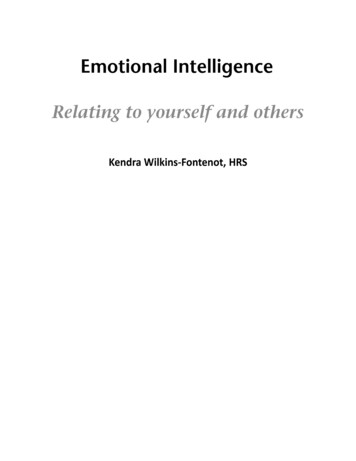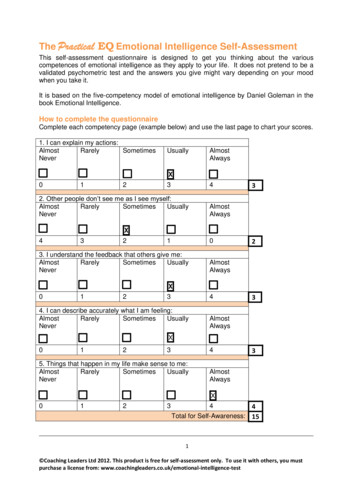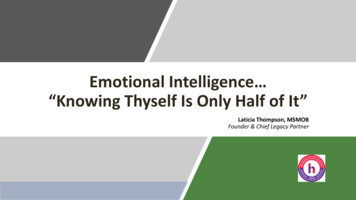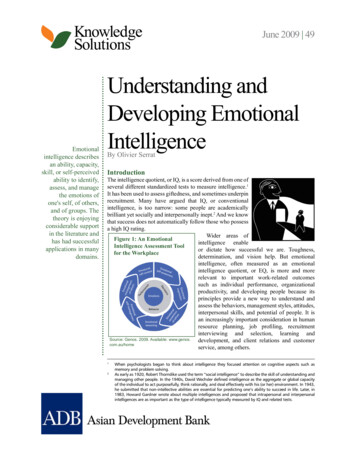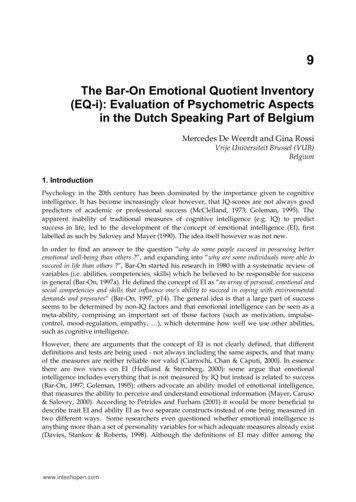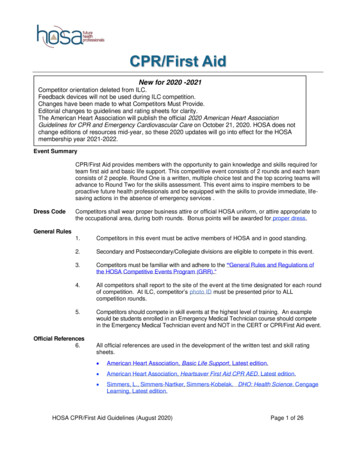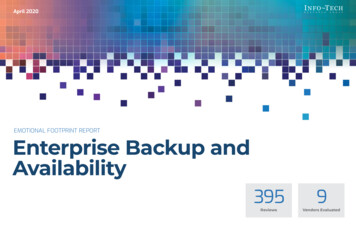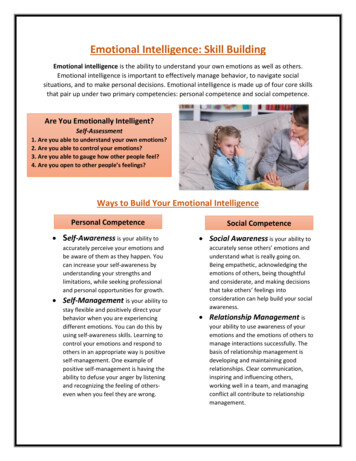
Transcription
Emotional Intelligence: Skill BuildingEmotional intelligence is the ability to understand your own emotions as well as others.Emotional intelligence is important to effectively manage behavior, to navigate socialsituations, and to make personal decisions. Emotional intelligence is made up of four core skillsthat pair up under two primary competencies: personal competence and social competence.Are You Emotionally Intelligent?Self-Assessment1. Are you able to understand your own emotions?2. Are you able to control your emotions?3. Are you able to gauge how other people feel?4. Are you open to other people’s feelings?Ways to Build Your Emotional Intelligence Self-Awareness is your ability toaccurately perceive your emotions andbe aware of them as they happen. Youcan increase your self-awareness byunderstanding your strengths andlimitations, while seeking professionaland personal opportunities for growth. Self-Management is your ability tostay flexible and positively direct yourbehavior when you are experiencingdifferent emotions. You can do this byusing self-awareness skills. Learning tocontrol your emotions and respond toothers in an appropriate way is positiveself-management. One example ofpositive self-management is having theability to defuse your anger by listeningand recognizing the feeling of otherseven when you feel they are wrong. Social Awareness is your ability toaccurately sense others’ emotions andunderstand what is really going on.Being empathetic, acknowledging theemotions of others, being thoughtfuland considerate, and making decisionsthat take others’ feelings intoconsideration can help build your socialawareness. Relationship Management isyour ability to use awareness of youremotions and the emotions of others tomanage interactions successfully. Thebasis of relationship management isdeveloping and maintaining goodrelationships. Clear communication,inspiring and influencing others,working well in a team, and managingconflict all contribute to relationshipmanagement.
Relationship Management ActivityIn this activity, for each of the green circles, write the names of important people in your life. Then, thinkabout what you know about that person. List two traits, hobbies, or features related to the person in thedesignated boxes. For example: Bob Smith 1) Runs marathons 2) Tells funny jokes.Name:Name:1.1.2.2.Name:1.2.If you had trouble listing something about the people in your life, you may want to pay moreattention to those around you. Learning something unique or personal about the individuals in yourlife can help you maintain caring and positive relationships.
Self-Management ActivitySelf-management builds on the basis of selfawareness and is the ability to control your emotionsso that they don’t control you. Self-managementmeans you’re able to control impulsive feelings andbehaviors, manage your emotions in healthy ways,take initiative, follow through on commitments, andadapt to changing circumstances. Many of us mayhave trouble managing emotions like anger, sadness,or frustration. Anger is a normal and healthyresponse to have in certain situations. Understandingyour anger and how to manage it is important inmaintaining relationships and self-control.Positive EmotionsNegative usDefensiveConfusedFor this activity, think of a time when you were angryand how you handled it. Describe your reaction andbehaviors in the lines provided below.The last time I was angry I Now, think about how you would like to processanger in the future. Describe healthy managementskills and behaviors and write them in the linesprovided below. Some suggestions are listed in thebox to the right.BREATHE DEEPLYTAKE A BREAKGO FOR A WALKTAKE A SHOWERDISTRACT YOURSELFLIE DOWNTHINK BEFORE SPEAKING WRITE ABOUT IT
Self-Awareness ActivityBefore you can make changes in yourself, you have to know what there is to work with. Becoming selfaware is about the process of understanding yourself. We all have strengths and limitations. Selfawareness can be developed and identifying your strengths and weaknesses can help with thisdevelopment. Spend some time recognizing areas you need to develop and intentionally make an effort todevelop or strengthen that aspect of yourself.Choose three strengths for yourself, and three you would like to improve on. If you don’t see a trait listedhere, feel free to write your own! Once you’ve chosen traits that need improving, think about anddescribe how you will attempt to improve those eHappyKindHonestFunnySensitiveLeaderDoesn’t give upPatientEager to Would like to Improve1.2.3.
Social Awareness ActivitySocial awareness is the ability to accurately read situations and people. This can occur when you areaware of your own emotions. An important part of social awareness is the ability to empathize with thepeople around you. This means that you are able to understand and appreciate why someone feels theway they do. This activity will exercise your ability to read others’ emotions. Match the pictures on theleft with the emotions listed on the right. Pictures may have more than one answer and you may addemotions that are not listed ernedFrustratedWorriedTiredCalmHappy
Emotional intelligence is important to effectively manage behavior, to navigate social situations, and to make personal decisions. Emotional intelligence is made up of four core skills that pair up under two primary competencies: personal competence and social competence. Ways to Build Your
